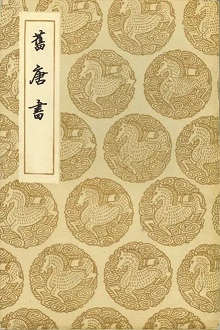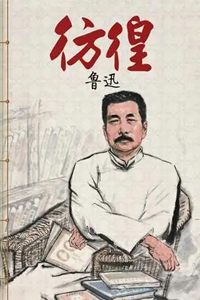To sum it all up once more, the Paris gamin of to-day, like the graeculus of Rome in days gone by, is the infant populace with the wrinkle of the old world on his brow.
The gamin is a grace to the nation, and at the same time a disease; a disease which must be cured, how? By light.
Light renders healthy.
Light kindles.
All generous social irradiations spring from science, letters, arts, education. Make men, make men. Give them light that they may warm you. Sooner or later the splendid question of universal education will present itself with the irresistible authority of the absolute truth; and then, those who govern under the superintendence of the French idea will have to make this choice; the children of France or the gamins of Paris; flames in the light or will-o'-the-wisps in the gloom.
The gamin expresses Paris, and Paris expresses the world.
For Paris is a total. Paris is the ceiling of the human race. The whole of this prodigious city is a foreshortening of dead manners and living manners. He who sees Paris thinks he sees the bottom of all history with heaven and constellations in the intervals. Paris has a capital, the Town-Hall, a Parthenon, Notre-Dame, a Mount Aventine, the Faubourg Saint-Antoine, an Asinarium, the Sorbonne, a Pantheon, the Pantheon, a Via Sacra, the Boulevard des Italiens, a temple of the winds, opinion; and it replaces the Gemoniae by ridicule. Its majo is called "faraud," its Transteverin is the man of the faubourgs, its hammal is the market-porter, its lazzarone is the pegre, its cockney is the native of Ghent. Everything that exists elsewhere exists at Paris. The fishwoman of Dumarsais can retort on the herb-seller of Euripides, the discobols Vejanus lives again in the Forioso, the tight-rope dancer. Therapontigonus Miles could walk arm in arm with Vadeboncoeur the grenadier, Damasippus the second-hand dealer would be happy among bric-a-brac merchants, Vincennes could grasp Socrates in its fist as just as Agora could imprison Diderot, Grimod de la Reyniere discovered larded roast beef, as Curtillus invented roast hedgehog, we see the trapeze which figures in Plautus reappear under the vault of the Arc of l'Etoile, the sword-eater of Poecilus encountered by Apuleius is a sword-swallower on the PontNeuf, the nephew of Rameau and Curculio the parasite make a pair, Ergasilus could get himself presented to Cambaceres by d'Aigrefeuille; the four dandies of Rome: Alcesimarchus, Phoedromus, Diabolus, and Argyrippus, descend from Courtille in Labatut's posting-chaise; Aulus Gellius would halt no longer in front of Congrio than would Charles Nodier in front of Punchinello; Marto is not a tigress, but Pardalisca was not a dragon; Pantolabus the wag jeers in the Cafe Anglais at Nomentanus the fast liver, Hermogenus is a tenor in the Champs-Elysees, and round him, Thracius the beggar, clad like Bobeche, takes up a collection; the bore who stops you by the button of your coat in the Tuileries makes you repeat after a lapse of two thousand years Thesprion's apostrophe: Quis properantem me prehendit pallio? The wine on Surene is a parody of the wine of Alba, the red border of Desaugiers forms a balance to the great cutting of Balatro, Pere Lachaise exhales beneath nocturnal rains same gleams as the Esquiliae, and the grave of the poor bought for five years, is certainly the equivalent of the slave's hived coffin.
Seek something that Paris has not. The vat of Trophonius contains nothing that is not in Mesmer's tub; Ergaphilas lives again in Cagliostro; the Brahmin Vasaphanta become incarnate in the Comte de Saint-Germain; the cemetery of Saint-Medard works quite as good miracles as the Mosque of Oumoumie at Damascus.
Paris has an AEsop-Mayeux, and a Canidia, Mademoiselle Lenormand. It is terrified, like Delphos at the fulgurating realities of the vision; it makes tables turn as Dodona did tripods. It places the grisette on the throne, as Rome placed the courtesan there; and, taking it altogether, if Louis XV. is worse than Claudian, Madame Dubarry is better than Messalina. Paris combines in an unprecedented type, which has existed and which we have elbowed, Grecian nudity, the Hebraic ulcer, and the Gascon pun. It mingles Diogenes, Job, and Jack-pudding, dresses up a spectre in old numbers of the Constitutional, and makes Chodruc Duclos.
Although Plutarch says: the tyrant never grows old, Rome, under Sylla as under Domitian, resigned itself and willingly put water in its wine. The Tiber was a Lethe, if the rather doctrinary eulogium made of it by Varus Vibiscus is to be credited: Contra Gracchos Tiberim habemus, Bibere Tiberim, id est seditionem oblivisci. Paris drinks a million litres of water a day, but that does not prevent it from occasionally beating the general alarm and ringing the tocsin.
With that exception, Paris is amiable. It accepts everything royally; it is not too particular about its Venus; its Callipyge is Hottentot; provided that it is made to laugh, it condones; ugliness cheers it, deformity provokes it to laughter, vice diverts it; be eccentric and you may be an eccentric; even hypocrisy, that supreme cynicism, does not disgust it; it is so literary that it does not hold its nose before Basile, and is no more scandalized by the prayer of Tartuffe than Horace was repelled by the "hiccup" of Priapus. No trait of the universal face is lacking in the profile of Paris. The bal Mabile is not the polymnia dance of the Janiculum, but the dealer in ladies' wearing apparel there devours the lorette with her eyes, exactly as the procuress Staphyla lay in wait for the virgin Planesium. The Barriere du Combat is not the Coliseum, but people are as ferocious there as though Caesar were looking on. The Syrian hostess has more grace than Mother Saguet, but, if Virgil haunted the Roman wine-shop, David d'Angers, Balzac and Charlet have sat at the tables of Parisian taverns. Paris reigns. Geniuses flash forth there, the red tails prosper there. Adonai passes on his chariot with its twelve wheels of thunder and lightning; Silenus makes his entry there on his ass. For Silenus read Ramponneau.
Paris is the synonym of Cosmos, Paris is Athens, Sybaris, Jerusalem, Pantin. All civilizations are there in an abridged form, all barbarisms also. Paris would greatly regret it if it had not a guillotine.
A little of the Place de Greve is a good thing. What would all that eternal festival be without this seasoning? Our laws are wisely provided, and thanks to them, this blade drips on this Shrove Tuesday.
再简括起来谈谈,今日巴黎的野孩,正如当年罗马的剽民,他是那种额上有古国皱纹的人民孩子①。
①在手稿上雨果对“人民孩子”是这样解释的:“人民孩子两词并立,两词表达一个意思:孩子。”
野孩是祖国的荣光,同时也是祖国的病害,一种必须医治的病害。怎样医治?利用光明。
光明荡涤污垢。
光明廓清黑暗。
社会上一切乐善好施的光辉全出自科学、文学、艺术、教育。培养人,培养人。你给他光,他会给你热。辉煌的全民教育问题迟早会以绝对真理的无可抗拒的威力被提出来,到那时,在法兰西思想的指导下,治理国家的人必将有所抉择:是要法兰西的儿女还是要巴黎的野孩,是要光明中的烈焰还是要黑暗中的鬼火。
野孩说明巴黎,巴黎说明世界。
因为巴黎是总和。巴黎是人类的天幕。这整座奇妙的城市是各种死去的习俗和现有的习俗的缩影。凡是见过巴黎的人都以为见到了历史的全部内幕以及幕上偶现的天色和星光。巴黎有一座卡匹托尔①,就是市政厅,一座巴台农②,就是圣母院,一座阿梵丹山③,就是圣安东尼郊区,一座阿西纳利乌姆④,就是索邦⑤,一座潘提翁⑥,就是先贤祠,一条神圣大路⑦,就是意大利大路,一座风塔⑧,就是舆论,它并用丑化的办法代替喏木尼⑨。它的马若⑩叫做绔袴子弟,它的对河区⑾人民叫做郊区人民,它的哈马尔⑿叫做市场的大汉,它的拉扎洛内⒀叫做黑帮,它的柯克内⒁叫做花花公子。别处所有的一切巴黎全找得到。
①卡匹托尔(Capitole),建筑在罗马的卡匹托林山岗上的要塞。
②巴台农(Parthénon),雅典的古庙。
③阿梵丹山(Mont-Aventin),罗马的七个山岗之一,罗马立国初期,平民曾全体由城里迁到阿梵丹山,迫使贵族们作政治上的让步。
④阿西纳利乌姆(Asinarium),公元前一世纪在雅典建立的建筑物。
⑤索邦(Sorbonne),巴黎大学前身。
⑥潘提翁(Panthéon),古罗马的万神庙。
⑦神圣大路,古罗马的一条大路,是军队凯旋必经之路。
⑧雅典的八角形风塔,建于公元前一世纪。
⑨喏木尼,罗马卡匹托林山岗西北坡上曝尸的台阶。
⑩马若,西班牙安达路西亚地方爱装扮的男子。
⑾对河区,指隔着台伯河与罗马相望的地区。
⑿哈马尔,阿拉伯国家的搬运工人。
⒀拉扎洛内,那不勒斯的贫民。
⒁柯克内,伦敦市中心的时髦少年。
杜马尔赛的卖鱼妇和欧里庇得斯的卖草妇针锋相对,踩绳人福利奥佐是掷铁饼人弗让纽斯的再世,德拉朋第乌纽斯。米勒会挽着侍卫华德朋克尔的胳膊,达马西普会在旧货店里流连忘返,万森刺杀苏格拉底正如阿戈拉囚禁狄德罗,格利木·德·拉雷尼埃尔会做油脂牛排正如古尔第吕斯发明烤刺猬。我们见到普劳图斯著作中的高架秋千重现在明星门的气球下面,阿普列乌斯在普西勒遇见的吞剑人便是新桥上的吞刀人,拉穆的侄儿和寄生虫古尔古里翁是一对,埃尔加齐尔请爱格尔弗依把他介绍给康巴色勒斯,罗马的四个纨袴子弟阿尔色西马尔古斯、费德洛木斯、狄阿波吕斯和阿尔吉里帕乘着拉巴突的邮车从拉古尔第①出发,奥吕·热尔在孔格利奥面前没有比查理·诺缔埃在波里希内儿面前待得更长久,马尔东不是母老虎,但是巴尔达里斯卡也绝不是一条龙,滑稽人潘多拉布斯在英格兰咖啡馆里嘲弄享乐人诺曼达纽斯,埃尔摩仁是爱丽舍广场的男高音,并且在他周围有无赖特拉西乌斯扮成波白什②向人募捐,在杜伊勒里广场上掐住你的衣扣、不让你走的那个讨厌人让你在两千年以后还重复着忒斯卜利翁的那句话:“在我有急事时谁突然抓住了我的衣襟?”叙雷讷酒冒充阿尔巴酒,德佐吉埃的红滚边配得上巴拉特龙的大摆,拉雪兹神甫公墓在夜雨中和埃斯吉里一样发出磷光,为期五年的穷人冢比得上奴隶的租用棺材。
①拉古尔第(La Courtille),巴黎一个旧区的名称,其地酒店特多,每年狂欢节,更是热闹的中心,是假面具游车的出发站。
②波白什(Bobèche),十九世纪初出现在巴黎街头的著名小丑,成了市集中的小丑典型。
请你找找有什么东西是巴黎没有的。凡是特洛风尼乌斯桶里的东西,没有一件不在麦斯麦的木盆里,埃尔加非拉斯借着加略斯特罗还了魂,婆罗门僧人梵沙方陀转世为圣日耳曼伯爵,圣美达公墓显示奇迹完全和大马士革的乌姆密埃清真寺一样高明。
巴黎有一个伊索,就是马叶,也有一个加尼娣,就是勒诺尔曼姑娘①。和德尔法一样,它在错觉的耀眼的真实性前惊慌,它使桌子旋转,如同多多纳②的三脚凳,它让俏女人坐上宝座,如同罗马让娼妇坐上宝座那样。总而言之,假如路易十五比克洛狄乌斯更坏,那杜巴丽夫人比梅沙琳又好些。巴黎把希腊的裸体、希伯来的脓疮和加斯科涅③的笑话合成了一个空前未有的人物,那是确实存在过的,也是我们接触过的。它把第欧根尼④、约伯⑤和巴亚斯⑥糅在一起,用几张旧《立宪主义者报》替一个僵尸做身衣服穿上,便有了肖德鲁克·杜克洛⑦。
①勒诺尔曼姑娘(Mlle Lenormand,1772?843),以用抽绳子的方法预言吉凶著名。
②多多纳(Dodone),希腊古城,有座朱庇特庙,是著名的神谶所。女巫求神谶时坐三脚凳。
③加斯科涅(Gasgogne),法国西南部旧省名。
④第欧根尼(Diogène,约前404?23),古希腊哲学家,昔尼克学派创始人之一,该学派反映了人民中贫困阶层对有产者统治的消极抗议。
⑤约伯(Job),乌斯人,极富有,并具有忍耐的精神。一般借指极能忍耐的人。
⑥巴亚斯(Paillasse),小丑,也指投机政客。
⑦肖德鲁克·杜克洛(Chodruc Duclos,1780?842),曾为波旁王朝效忠,参加过旺代叛乱。后感到复辟王朝不会为此给他酬报,他就留了极长的胡子和头发,每天到王宫前去出洋相,以示抗议。
尽管普卢塔克①说过:“暴君不会到老”,可是罗马在西拉的统治下正如在多米齐安②的统治下一样,能耐苦安贫,甘愿在酒里掺水。台伯河是条迷魂河,假如我们必须相信瓦吕斯·维比斯古斯所说的那句有点食古不化的赞词:“在格拉可斯的对面,我们有台伯河。喝了台伯河的水,便会忘了造反。”巴黎每天要唱一百万公升的水,但是这并不妨碍它在适当的时候打鼓吹号敲钟,进入警备状态。
①普卢塔克(Plutaroue,约46?25),古希腊唯心主义哲学家,古希腊罗马杰出活动家传记的作者。
②多米齐安(Domitian,51?6),罗马皇帝(81?6)。
除此之外,巴黎是个好孩子。它豁达大度地接受一切,在美女面前它是不难说话的,它的美女是霍屯督①,只要它笑,凡事都好商量,丑态使它欢跃,畸形使它喜悦,恶德使它忘忧,只要与众不同,便可博得众人欢心,伪善即使是绝顶无耻的行为,也不会使它暴跳。它是那样爱好文学,以致在巴西尔②的跟前也不会捂着鼻子,它对达尔杜弗③的祈祷所起的反感并不比贺拉斯对普里阿普斯打嗝的反感来得更强烈。全世界一切脸上的线条在巴黎的侧影上没有不具备的。玛碧舞场④不是让尼古勒⑤的波吕许尼亚⑥舞,但是倒手转卖脂粉的妇人在那里用贼眼偷觑娇娘子的神情却正象窥伺处女普拉纳西的媒婆斯达斐拉。战斗便门不是竞技场,但是在那里人人斗狠逞强,好象有恺撒在看着他们一样。叙利亚老板娘比沙格大娘来得风骚些,但是,如果说维吉尔不时光临罗马的酒店,那大卫·德·昂热、巴尔扎克和沙尔莱也都坐在巴黎小酒铺的桌子旁边。巴黎君临一切。在那里天才炳蔚,红尾⑦云集。阿特乃⑧常乘着十二个雷电轮子的车走过那里;西勒诺所⑨骑着母驴进城。西勒诺斯,就是朗蓬诺⑩。
①霍屯督(Hottentot),非洲西南部的民族,巴黎植物园陈列馆曾有陈列。
②巴西尔,博马舍所作剧本《塞维勒的理发师》里的伪善人物。
③达尔杜弗,莫里哀所作剧本《伪君子》中的主角。
④玛碧,巴黎一舞场名。
⑤让尼古勒(Janicule),罗马七个山岗之一。
⑥波吕许尼亚 九个文艺女神之一。
⑦红尾,用红绸结在辫子上的小丑。
⑧阿特乃,希伯来人称上帝为“阿特乃”,意为“吾主”,犹太教用此名代替禁呼的“耶和华”。
⑨西勒诺斯(Silène),酒神的义父。
⑩朗蓬诺(R.moonneau),巴黎著名的酒店老板。
巴黎是宇宙的同义词。巴黎就是雅典、罗马、西巴利斯①、耶路撒冷、庞坦。所有的文化在那里都有缩影,所有的野蛮风气也一样。巴黎会感到美中不足,要是它没有一座断头台的话。
①西巴利斯(Sybaris),意大利南部古城。
来一点格雷沃广场是好的。如果没有这种调味品,那永远不散的筵席又怎么办呢?我们的法律在这方面高明地作了准备,有了那种法律,那把板斧便可在狂欢的节日里滴血了。







